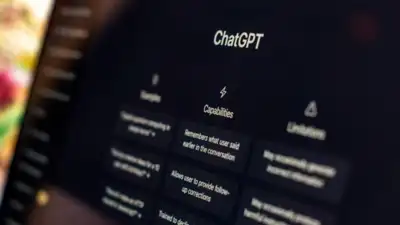ARTICLE AD BOX

The freelancing market in India has become increasingly sophisticated. What once worked; generic templates and broad skill descriptions, now struggles to keep professionals afloat.
The freelancers thriving today understand something crucial: it's not about having the best skills, it's about communicating value in ways that resonate with specific client psychology.This shift has created an unexpected opportunity. While thousands of freelancers compete on price and credentials, a smaller group has discovered how to use ChatGPT not just as a writing tool, but as a strategic advantage that transforms how they position themselves in the market.
Personalise your outreach
The statistics are compelling in proving that personalised outreach generates three to five times better response rates. Yet most freelancers either send identical messages to hundreds of prospects or spend hours crafting individual emails that become economically unviable.The breakthrough lies in understanding that effective personalisation isn't about mentioning the client's name or company. It's about demonstrating genuine comprehension of their industry challenges and positioning your service as the logical solution.
Try this prompt: "Write a professional and friendly outreach email to [client type, e.g., a Delhi-based e-commerce startup owner] offering [your service, e.g., product listing optimisation]. Mention how this service can help increase their sales and reduce time spent managing listings. Keep it clear, concise, and personalised." The nuance lies in execution. Rather than stating "I can help with product listings," you're positioning yourself as someone who understands the cascade effect of poor listing optimisation on overall business performance.
Position yourself from the client’s POV
Platform profiles fail because they're written from the freelancer's perspective rather than the client's decision-making framework. Clients don't search for "creative graphic designer with 5 years experience." They search for solutions to specific problems they're experiencing right now.The most successful profiles mirror the exact language clients use when describing their challenges internally. This isn't about keyword stuffing, it's about linguistic alignment with client thinking patterns.Try this prompt: "Help me write a compelling Upwork profile summary as a freelance [your profession, e.g., digital marketer] targeting Indian small and medium businesses. Include keywords like affordable, quick turnaround, and proven results. Highlight my ability to improve client sales and engagement."The difference between average and exceptional profiles isn't creativity; it's empathy. Understanding that a small business owner in Ahmedabad evaluates service providers differently than a multinational corporation in Mumbai changes everything about how you present your capabilities.
Address what your client needs
Winning proposals aren't about demonstrating competence, they're about reducing client anxiety. Every client brief contains both explicit requirements and implicit concerns. The explicit requirements are what they list; the implicit concerns are what keep them awake at night.Most freelancers address the explicit requirements and ignore the psychological subtext. They explain what they'll do without addressing why the client should trust them to do it well.Try this prompt: "Write a short proposal for a freelance project where the client wants help with [project description, e.g., social media marketing for their startup]. Explain how I will address their needs, mention a clear timeline (e.g., 2 weeks), and provide a reasonable pricing estimate. Make it personalised and professional."The strategic framework embedded in this prompt addresses three psychological triggers: competence (how you'll solve their problem), reliability (clear timeline), and value perception (reasonable pricing).
Effective proposals create what psychologists call "cognitive ease"—the feeling that working with you will be straightforward and successful. This happens when you anticipate questions they haven't asked and address concerns they haven't voiced.
Follow up diligently
Most freelancers either never follow up or follow up in ways that signal desperation. The strategic middle ground involves understanding the difference between being helpful and being pushy.Effective follow-ups provide additional value whilst creating a legitimate reason for renewed contact. They demonstrate continued interest without appearing needy.Try this prompt: "Write a polite and friendly follow-up message for a client who has not responded to my freelance proposal sent 5 days ago. Ask if they had time to review it and if they have any questions. Keep the tone warm and professional."The strategic insight is that follow-ups should feel like natural extensions of your initial conversation rather than repeated sales pitches.
They should reduce friction for the client whilst maintaining your professional credibility.
Be prepared to resolve any doubts
Client interviews reveal a universal truth: technical competence is assumed, but confidence and clarity are what close deals. Clients want to feel that you understand their world and can navigate it successfully.The most common interview failures aren't about lacking skills, they're about failing to articulate value clearly or handling common objections awkwardly.Try this prompt: "Help me prepare answers for common freelance client interview questions. Include responses for questions about pricing, project timelines, and how I handle revisions. Make the answers polite, clear, and confident."The strategic advantage comes from preparing responses that position these potentially difficult conversations as collaborative discussions rather than confrontational negotiations.
Leverage ChatGPT to gain an edge
The freelancing market rewards those who understand client psychology rather than those who simply possess technical skills. ChatGPT provides a systematic way to apply these psychological insights at scale, creating sustainable competitive advantages.These strategies work because they address the fundamental disconnect between how freelancers think about their services and how clients evaluate potential providers.
By bridging this gap consistently, you create a reputation for being different, and therefore more valuable, than your competition.
The opportunity exists because most freelancers focus on improving their craft while neglecting the equally important skill of communicating their value effectively. Those who master both dimensions don't just win more clients, they command higher rates and build more sustainable businesses.



.png)
.png)
.png)
















 4 hours ago
4
4 hours ago
4









 English (US) ·
English (US) ·